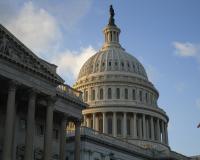
Vibrant Environment
Governance And Rule Of Law
All | Biodiversity | Climate Change and Sustainability | Environmental Justice | Governance and Rule of Law | Land Use and Natural Resources | Oceans and Coasts | Pollution Control

Climate policy has again risen to the top of the national agenda. Although the current Administration has taken actions such as withdrawing from the Paris Agreement or relaxing regulations on vehicle and power plant emissions, members of Congress are formulating progressive proposals to mitigate climate change, and states have taken ambitious steps to reduce carbon emissions. A carbon tax proposal has gained traction among conservative think-tanks and politicians, House Speaker Nancy Pelosi has formed a Select Committee on the Climate Crisis, and the Green New Deal has sparked a robust debate on pathways to a more sustainable future.

PFAS is a catch-all term for the chemical compounds per- and polyfluoroalkyls (including PFOA, PFOS, and replacements such as GenX). Seemingly overnight, these substances have gone from something talked about mainly by environmental lawyers and advocates to something that the public is increasingly focused on. The reasons for this shift include EPA’s and the states’ move to regulate these substances, recent lawsuits targeting PFAS manufacturers, and a better understanding of the way these substances may persist in the environment and harm human health. Because the future costs and obligations regarding the cleanup of, and human exposure to, PFAS are uncertain and likely significant, they present a challenge for environmental attorneys and their clients when performing deal diligence and negotiating contracts.
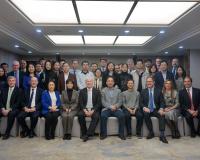
I write this column on a plane returning from Beijing and an ELI convening called the China International Business Dialogue on Environmental Governance (CIBDEG). This is an innovative project brought to ELI by Leadership Council member Paul Davies of Latham’s London office. The heart of the idea is for ELI and a Chinese partner entity (the Policy Research Center on Environment and Economy (PRCEE)) to broker a conversation between Chinese regulators and multinational companies that are either trying to make a go of it in China or deeply reliant on supply chains that originate in China. This is a project in which I am personally involved, mainly because of my relationships with Chinese regulators from my days doing international work at EPA.
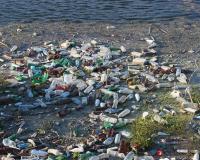
The world is waking up to the growing problem of plastic waste contaminating our ocean and terrestrial environments. Local governments—lauded as laboratories of innovation—have begun enacting bans and fees on single-use plastics, reducing the amount entering the waste stream in the first place. Businesses are stepping up; national and multinational governance bodies are adopting laws cutting down on the manufacture and distribution of single-use plastics. In the United States, California, the District of Columbia, Hawaii, and Maine have initiated statewide restrictions, while Oregon and Washington are considering similar measures.

When I was a child, my father would repeatedly remind me (and my siblings) to “turn off the lights—money doesn’t grow on trees”. Was it because he was concerned about the environment? No, not really—it was because we were relatively poor. But I am pretty good now about remembering to turn off the lights (and I get pretty annoyed when others don’t—especially when the lights are “supposed” to go off automatically but don’t).
Now, as the current chair of the ABA Section of Environment, Energy and Resources (SEER), I have the ability and privilege to oversee many exciting initiatives.
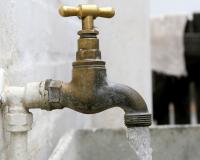
Lack of access to safe wastewater management infrastructure and improved sanitation is a global challenge that affects over 2 billion people worldwide. While large-scale wastewater treatment plants are common throughout the world, off-grid communities that exist outside of areas covered by centralized water infrastructure are often geographically isolated or economically marginalized, making these services not only unaffordable but inaccessible. In the absence of these networks, many communities have chosen to adapt. Although it is typically considered to be unlawful or illegitimate by their national governments, communities have begun to build decentralized systems to treat and reuse wastewater for agricultural purposes.
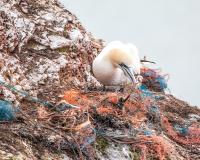
March 16, 2019; a young whale is found washed up on a beach in the Philippines. Autopsy reveals the whale died from “gastric shock” after ingesting 40kg of plastic rubbish including plastic bags and other disposable plastic products. Three weeks later, a pregnant sperm whale is found dead on a beach in Sardinia, Italy, more than two-thirds of her stomach filled with plastic waste.
These whales are the latest casualties of a growing worldwide plastic pollution problem.

States are continuing to make significant commitments to reduce greenhouse gas (GHG) emissions. Though the federal government is looking to roll back federal GHG reduction programs, states have a long history of taking the lead to design policies that meet their citizens’ environmental, health, and economic objectives and often look to build upon other states’ successes.
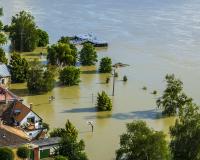
The current flooding disasters in the Midwest, as well as the flooding consequences of Hurricanes Michael, Harvey, Irma, and Maria, have damaged thousands of U.S. homes and businesses over the last decade. The National Flood Insurance Program (NFIP), enacted by Congress in 1968, aims to minimize the risk of flood damage as well as reduce flood-related disaster recovery costs. This federally backed program provides insurance to property owners and renters, establishes building and land use requirements and floodplain management practices for local communities to qualify, and maps flood-risk areas to inform development decisions and insurance premiums. But the NFIP assumes that flood risks are static and change little over time, and the effects of climate change are challenging this assumption.
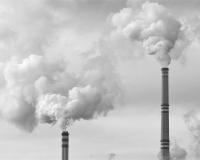
It was a half century ago that the federal government for the first time went to court “to close down a plant for polluting the air.” The quote is from the February 8, 1969, edition of the New York Times. The facility at issue was a chicken rendering plant in Bishop, Maryland, whose emissions were wafting into neighboring Delaware, thus allowing newly installed Attorney General John Mitchell — who would go on to play a major role in the Watergate scandal — to initiate the history-making suit.